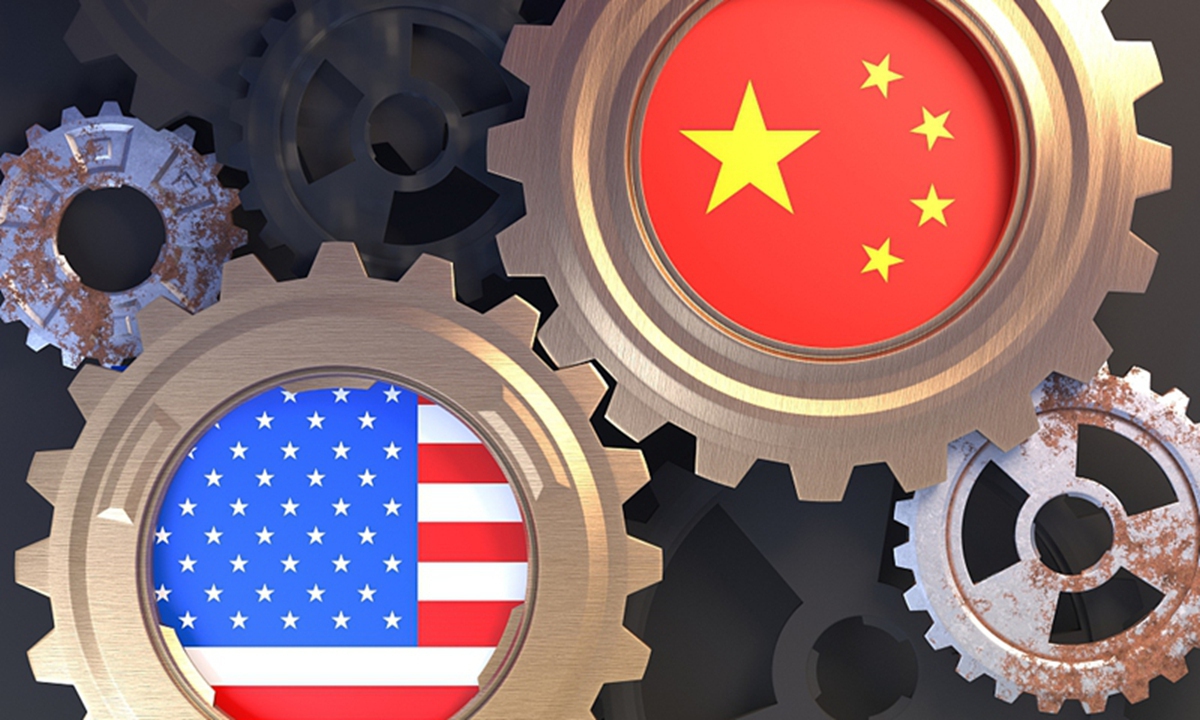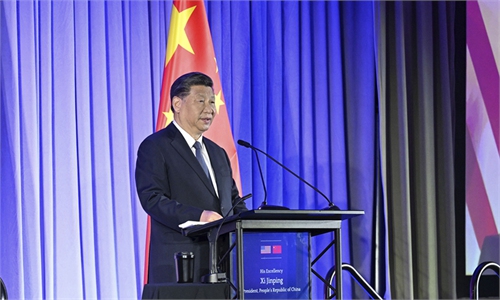
File photo: China US
The recent meeting between Chinese President Xi Jinping and US President Joe Biden in San Francisco was their first meeting in one year. It was also Xi's first visit to the US in six years. The two heads of state had a candid and in-depth exchange of views on strategic, overarching and directional issues concerning China-US relations. They also discussed major issues concerning world peace and development, and established the five pillars of bilateral ties. This undoubtedly reflects a good sign that bilateral relations have stopped falling and have been stabilized. However, it requires both sides to meet each other halfway in order to make the relations continue to stabilize.China-US relations are at a crossroads. Whether they become partners or rivals depends on the choices the two countries make. Conflict is unbearable for both sides. The key is to find the right way to get along. To this end, China has proposed mutual respect, peaceful coexistence and win-win cooperation. In order to stabilize and improve bilateral relations, China has also proposed five pillars - jointly develop a right perception, jointly manage disagreements effectively, jointly advance mutually beneficial cooperation, jointly shoulder responsibilities as major countries and jointly promote people-to-people exchanges. These propositions undoubtedly reflect China's great sincerity and positive attitude toward promoting the stability of China-US relations. They also require the US to change its strategic misjudgment against China and meet each other halfway.
However, there are some hidden dangers in the future, mainly reflected in the Taiwan question, economic and trade issues, and the upcoming US election.
China attaches great importance to the Taiwan question. President Xi once again elaborated on China's principled position on the Taiwan question in depth during his meeting with Biden, pointing out that the Taiwan question remains the most important and the most sensitive issue in China-US relations. President Biden also reaffirmed his commitment that the US does not support "Taiwan independence." However, the US still does not give up arms sales to the island of Taiwan and maintains quasi-official contacts with Taiwan, and continues to interfere in China's internal affairs. The 2024 elections in Taiwan will be an important test for the stability of the Taiwan Straits and will also challenge the stability of China-US relations.
President Xi pointed out that the US' actions against China regarding export control, investment screening and unilateral sanctions seriously hurt China's legitimate interests. If the US side does not stress the importance of the economic and trade issue, it would be going against the statement made by Biden that the US is glad to see prosperity in China, it does not seek to contain or suppress China or to "decouple" from China.
The US is about to enter an election year and will play the "China card" wantonly. There are currently many voices in the US advocating toughness on China, and even accusing the Biden administration of being soft on China. Historically, US election years have often caused disruptions of China-US relations and even had a negative impact on bilateral relations, which has posed challenges to the stability of China-US relations.
As the most important bilateral relationship in the world today, China-US relations involve bilateral, regional and global relations. The two countries should make the cake of bilateral cooperation bigger based on "seeking common ground while reserving differences." San Francisco should not be the end point for the improvement of bilateral relations, but a starting point to promote the stability and warmth of China-US relations.
To this end, China and the US should strengthen cooperation and exchanges in all fields and at all levels, enhance the ability of improving bilateral ties, and promote China-US ties to truly "stabilize" and "get better."
The author is deputy director of the Institute of International Relations of China Foreign Affairs University. opinion@globaltimes.com.cn

